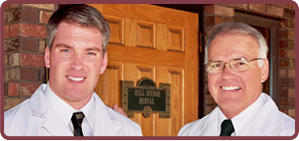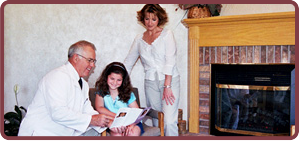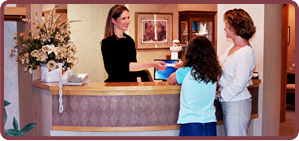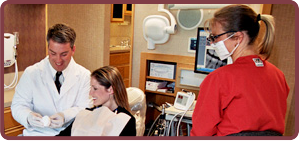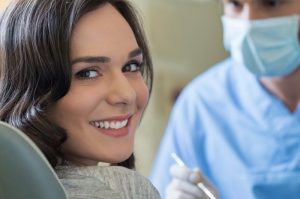 It’s clear that dentists and their team members practice consistent hand-washing throughout the day and wear gloves to prevent the spread of germs and diseases in the dental office. However, in the age of the current pandemic, it’s understandable if you initially have second thoughts about visiting a dentist during COVID-19. The good news is that dental offices are actually one of the safest places you can be in during a pandemic. Here’s how dentists are taking additional precautions to protect you and your family when you need your dental treatments completed.
It’s clear that dentists and their team members practice consistent hand-washing throughout the day and wear gloves to prevent the spread of germs and diseases in the dental office. However, in the age of the current pandemic, it’s understandable if you initially have second thoughts about visiting a dentist during COVID-19. The good news is that dental offices are actually one of the safest places you can be in during a pandemic. Here’s how dentists are taking additional precautions to protect you and your family when you need your dental treatments completed.
Personal Hand Hygiene
The standards for personal hand hygiene include washing hands with soap and water as well as utilizing alcohol-based hand rubs (specifically products that contain at least 60 percent alcohol) several times throughout the day. However, it also means removing jewelry, which includes wrist watches. It’s also important to keep fingernails trimmed to about ¼ of an inch and neatly filed with no sharp edges of any kind. Long or fake fingernails are not permitted as they can easily transfer bacteria. For protecting the skin barrier, hand creams and lotions are also utilized after hand washing or using alcohol-based rubs (both of which can dry out the skin.)
Hand washing is especially important:
- After a dentist or team members sees a patient
- Before leaving an operatory
- After touching objects that have been or may have been contaminated by blood, saliva or other bodily fluids
- When hands are visibly soiled
- After removing gloves that are torn, cut or punctured
- Before replacing damaged gloves
In order to prevent reinfection of the hands, team members use disposable paper towels to both dry their hands, open doors and turn off the faucet they were using. These small habits can make a big difference, especially when reducing disease transmission is so important.
Proper Use of Personal Protective Equipment
Disposable gloves are essential when working with patients, but dentists, hygienists and dental assistants need to make sure that their hands are thoroughly dry before wearing them. Not only does this reduce the risk of dry skin (which negatively affects the skin barrier and makes hand hygiene more difficult) but it also reduces the risk of bacteria production on the hands while wearing gloves.
Additionally, dental professionals always make sure to utilize the right masks, disposable gowns and clothing that can be thoroughly sanitized if it can be reused. Face shields can also be used to provide an additional barrier between patients and dental team members.
Adjusting the Office Environment
While the waiting area is designed to make patients feel comfortable, you’ll notice that dental teams are now asking patients to wait in their cars and then be contacted through their phones when it’s time to begin their appointment. Removal of magazines and even chairs can dramatically reduce the spread of bacteria. Furthermore, you’ll find that offices are not seeing as many patients in a given day, allowing more time for patients to complete treatments, and seeing multiple family members at once to offset waiting times created by these additional safety practices.
With so many safety protocols performed daily, there’s no reason to worry when it’s time to visit a dentist, even during COVID-19! Your safety is always the highest priority when it comes to both your oral and overall health.
About Hill Avenue Dental
Dr. Doug Clark Jr. and Dr. H. Douglas Clark III are working diligently to ensure all patients can visit the office knowing their health and safety is accounted for. Whether you need a basic cleaning or a series of restorative procedures, they’re more than ready to complete care while reducing the risk of disease transmission. To set up your next appointment, you can contact them through their website.



